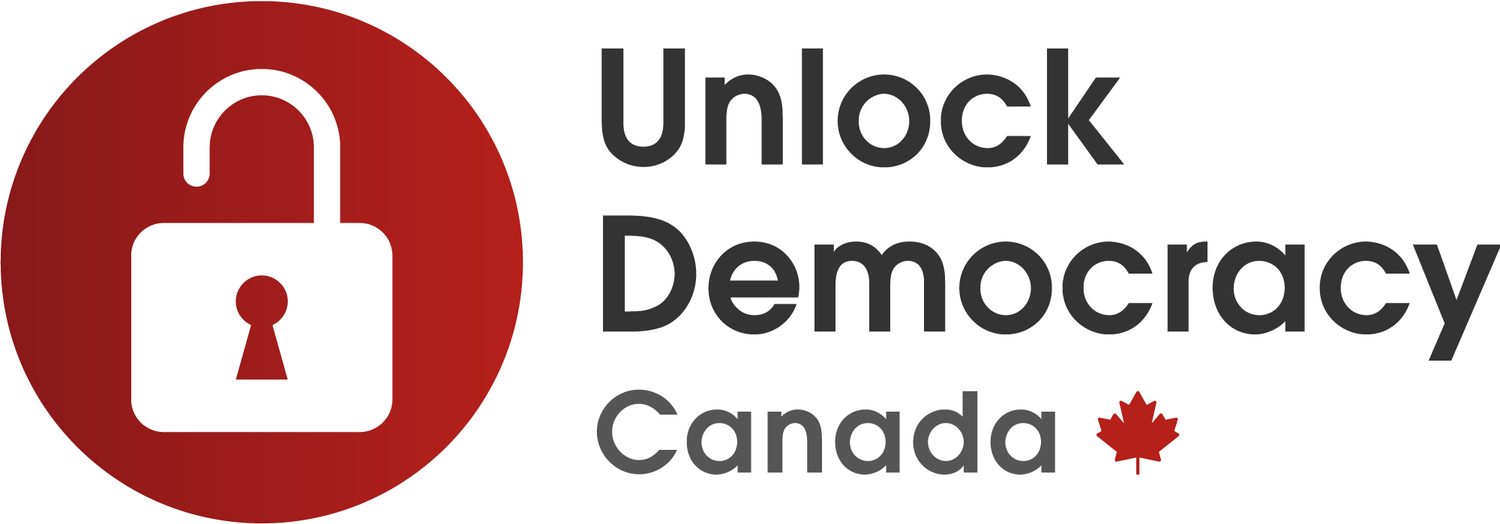Hands off!
My second-favorite political poster of all time is from the 1982 Hummer Sisters' mayoral campaign in Toronto. Their slogan, "This is no job for politicians", is just as relevent today as it was 35 years ago - especially when it comes to my favorite topic: democratic renewal.
Politicians, of all stripes, have shown us that they cannot be trusted with decisions related to electoral reform. Rigged referendums, misinformation and broken promises all take us further away from our goal of proportional government. Politicians are in a conflict-of-interest when it comes to voting reform, because they are the ones who won under the current system. If one system got you elected.... why would you change it?
So I say "Hands Off!". It's time for us to reclaim this important policy file and put it into the hands of regular people.
Does that mean we should use referendums instead? No, not necessarily. But it could. The devil is in the details. The problem with referendums, especially on a complex topic, is that many voters might not be informed enough to make a decision that is in their own interest. This is especially true when the referendum process is rigged with an intentional lack of education funding (as we saw in Ontario's referendum). But even with proper education, a referendum is still a non-deliberative process.
So how we do create a deliberative process, without politicians? The answer is called a Citizens Assembly or Citizens Reference Panel. Pioneered in Canada, starting with BC's 2004 Citizens' Assembly on Electoral Reform, it's a really innovative process that removes partisan conflict-of-interest (..and partisan games, partisan bickering, partisan infantile behaviour, etc...) and replaces it with a randomly-selected non-partisan panel of regular citizens. Just like a jury!
The Reference Panel goes through three stages:
1) Education. They learn about an issue, intensively and in-depth.
2) Consultation: They hear advice and suggestions from experts, advocates and the public.
3) Deliberation: They go through a facilitated discussion, weighing all the options.
4) Decision: They produce a concrete recommendation.
This is precisely what the 2016 All-Party Committee on Electoral Reform (ERRE) was supposed to do. Except for one problem: the Committee was comprised of politicians.
This is no job for politicians. And this is no job for a quick, rushed underfunded referendum. Recent history shows us that politicians will vote almost always vote against electoral reform and the general public will as well, in a rigged referendum. But history also shows us that randomly-selected citizens who are taken through a deliberative process do the exact opposite. They vote in favour of reform - every single time. And they vote for proportional representation - every time.
Here is a flowchart I created (below), to help advocates develop their strategy for 2016. It's an irrelevant document now, perhaps, but could serve as a guide as we re-group and move forward. The thesis is simple: don't focus on the desired outcome (PR), focus instead on the desired process (Citizens Assembly). A well-finded, and highly-publicised Citizens Assembly or Reference Panel would change the game. It would inform, it would educate, it would help build trust and confidence in the process. And then, if the recommendation was put to a referendum, citizens would know that they aren't voting in a proposal that was developed by politicians, they're voting on a proposal that was developed by their own neighbours. That changes everything.
The right process, will deliver the right outcome. So rather than campaigning for PR (which none of the parties, once in power, have ever shown any interest in), we're much more likely to win by campaigning for a Citizen's Assembly.
It's too late to change the recommendations from the ERRE Committee. But it's not too late to shift gears before 2019.
Getting to PR
'The Trudeau majority and seven potential paths forward'
(prepared Autumn 2015)
Click image to download 2-page PDF:


